Find. Vet.
And make the most money you can with your rental!
If you love owning income-producing real estate as I do, then getting the best from a rental manager is likely something you think about.
Before I get into this, I’m going to assume you own the right real estate in the right location. I figure you got it at a low price…the RETA price hopefully. That puts you in a great position for realizing a serious yield.
In other words, you’ve bought best-in-class real estate in a market where demand is high…supply is restricted and scarce.
You’re ready to start renting and making an income.
Now you have to find a rental manager worth considering. Then you need to vet them.
Income-earning real estate is a key component in how I organize my life. And so is minimizing hassle. When I hand the keys of one of my properties to a rental manager I want to make good money, and I want zero problems.
That doesn’t mean I put it all to the back of my mind. I stay proactive. I develop and execute a strategy.
So, how do you succeed at this?
Click to watch the video. I own a condo on Portugal’s Silver Coast in Praia d’El Rey. I rent when I’m not using it. It’s just one of my rental properties around the world. Since I began my real estate investing journey I’ve learned a lot of hard lessons about finding and dealing with rental managers.
Well, like many things in life and business, find the right people and you’ve found your answer. I view getting the right rental manager as very similar to appointing an attorney. It’s an “appointment.” It’s important they feel both the obligation and the desire to deliver for you.
I place a lot of value on recommendations from competent people. I’m sure you can find competent rental managers with an online search, but the old-fashioned word-of-mouth way is still best in my opinion.
And no matter what, once I have a manager in place I want full visibility on the rental calendar and bookings. I want to see the accounting.
And you know something? A good rental manager wants this too! Because it makes their life much easier. This level of transparency means both your time isn’t wasted with questions like: “Is my condo available the week of November 5, I’m thinking of visiting.” It also puts them above suspicion. Your manager should want to make sure you know when they have renters in your place. That way there’s no doubt about them keeping the money.”
One thing tops the list for me when searching for a rental manager: Be numbers oriented.
The metrics matter most. Be focused on these. It’s easy for any of us to get friendly with the vendors. You have a good relationship with someone, you like them…
But be pragmatic. Rental management is a challenging business. Not everyone has the chops to excel at it.
Get connected. See what kind of income is being made by properties similar to yours. Check listings, ask your neighbors…
Have clear expectations.
Then, interview potential managers.
You need someone you’re comfortable with. You want a rental manager you can have a direct and open relationship with.
We all prefer dealing with people who are straight with us and know what they’re talking about. We all want a proper business relationship. If you ask your rental manager a question, you want to get actual answers. Not jibber jabber.
If someone isn’t able to give you clear answers, that’s a red flag.
In an ideal world we would just hire the rental manager and push it all to the back of our minds.
They should just be doing their job right?
In my early days working with rental managers, I made some big mistakes. I used the services of incompetent and even downright dishonest rental managers. I let them in and I didn’t fire them fast enough when I discovered the problems.
Today after hard-learned lessons I see it as my responsibility to help them. To push a bit, to coerce…to incentivize. And to fire them fast if it’s not working out. That’s important. A few warning signs and it’s adios from me. Sure, it’s a bit of work for me in the short term to find a new rental manager, but in time it’s priceless.
Here are some tips for sizing up a rental manager…
Get Recommendations
Ask anyone who’s done business with the rental manager what the experience was like. Are they happy with how it panned out…or disappointed? You want a quiet word…people will tell you things they would be reluctant to put in writing.
Next, go online and do an internet search. Search for similar homes to yours in the same area and see if a certain name comes up again and again. You might find a rental management company with a website that’s in the top three that shows up…or a manager who’s working all the vacation rental sites.
That web presence is crucial. It’s the way to get your home out there, in the face of potential renters, and keep a steady stream of visitors coming through your door.
See if the manager makes the real estate on their books appealing. Are there nice photos? Good descriptions? Would they make you want to stay there?
Do an online search for negative reviews, or unhappy customers. They’ll often post outside the rental platform, on social media sites or forums. If you find any, and you notice a common thread, it’s a red flag.
Check their Rates!
In 2008, Panama City’s historic district, Casco Viejo, was starting to emerge as a tourist destination. (Today, it’s a big tourist attraction and hipster haven.) In 2008, it was still sketchy…rough around the edges…but its mix of narrow brick-paved streets, colonial homes, quaint churches and little plazas had a definite appeal.
A friend bought a small one-bed condo in a historic building. It had a couple of bonus features: views over a leafy plaza with restaurants and cafés, and a rooftop swimming pool (a real novelty in Casco Viejo at that time).
She already owned an apartment in Casco and this purchase was pure investment. She wanted to rent it out short-term and have an income stream.
One thing she was sure of: she did not want to manage it herself. She was already running her own successful business, and she traveled frequently to meet clients and host workshops.
She told me that she had narrowed the list of potential rental managers down to two. One charged 25% of the gross rental income. The other, a boutique agency, charged 40%.

Casco Viejo, Panama City’s historic district is packed with chic bars and restaurants catering to an international crowd who reside, visit and enjoy the city.
Outraged by the 40% fee, she went with the cheaper-rate manager. Twelve months on, she realized it was a huge mistake.
Her net was $9,000. But talking to a neighbor in the same building with an almost-identical unit to hers, she discovered they had made $22,000 net in the same period—more than double her rental income. And, they had used the 40% manager.
The difference was occupancy rate and rental fee per night. The 40% manager got more guests…and charged more per night.
The 40% manager focused exclusively on Casco Viejo (unlike the 25% manager, who covered the whole of Panama City). Do a google search for Casco Viejo at the time and the 40% manager’s name would pop up, either in a paid ad…or in a feature article in a prominent U.S. newspaper…or via their own in-house blog on Casco. They targeted well-heeled tourists. All that extra work they did paid off for their clients in the form of higher occupancy and more rental income.
A good rental manager should immediately tell you the ballpark rental rates you can charge on your property and the type of occupancy you can expect. They should also give you a clear breakdown of what they will charge you and what it covers.
Will the manager find you renters…do check in and check out…pay the bills…take care of the cleaning…handle repairs and maintenance? It’s worth paying a little bit more to a manager who does all of this for you. The last thing you want is phone calls in the middle of the night asking you to fix the hot water or get the internet sorted in the rental property.
Ask what regular maintenance the manager will do, too. Will they turn mattresses, service the air conditioning, deep clean appliances?
Check the Paperwork
Have a local attorney review your agreement with the rental manager before you sign. And, check the agreements that renters will sign with the rental manager, whether short- or long-term. (More on those in a moment.)
Can You Stay on Top of Income?
Find a rental manager with a good reporting system. It has to be online so you can log in see at the touch of a button the big metrics like how many nights booked, how much income you’ve made, what bills were paid.
You will usually need accurate and official records of income for tax purposes, so it’s important your rental manager stays on top of reporting.
Get Their Fees in Writing
You should know before you sign them up how much you will pay a rental manager…and exactly what they do for that payment in return.
For short-term, you’ll pay anything from 15% to 40% of the rental income in fees. Drill down. I’ve seen rental managers apply their fee to ALL rentals (even those that you find yourself). Some companies charge a fixed rate per month (which you’ll pay even if you don’t have renters). That may be worth it if they have a good track record. If they don’t, you’re throwing money away.
For long-term rentals, you’ll typically pay 50% to 100% of the first month’s rent if the manager finds you a tenant. You can leave it there and handle things yourself…or pay a regular monthly charge of 5% to 15% if you want them to take care of maintenance, repairs, bills, and any issues the renter has.
How Many Units?
Chatting with the owner of a rental management company some years ago, he spoke frankly about one of the big issues this type of company faces.
They always seem to have too many properties and not enough staff…or vice versa.
It’s a balance that’s tough to get right. This guy was running a very successful rental management company that beat all others in the area, hands down. He targeted a niche of corporate short-term lets. Guests and property owners both gave him five-star ratings.
But he highlighted an issue all rental managers face. Most are juggling the number of units they manage and the number of staff they employ. You (and potential guests) won’t get good service if they have a skeleton crew of staff and a large number of units.
Find out what systems the manager uses for handling reservations, queries, and reporting problems. If they’re managing short-term rentals, they need to work all the listings sites…and give guests the ability to book straight away.
Investigate if they are an established company with a large client base or a start-up with no track record. A start-up might come along with some innovative ideas to draw in renters and an attractively low fee. But you’re their guinea pig as they learn the ropes. An established group will have experience…connections…and (hopefully) a good name for delivering excellent service. They’ll have staff in place and plumbers and cleaners on speed dial.

A beach close to Lagos, on the western Algarve, Portugal. RETA members who bought in deals in Lagos have done well.
Then there’s the advantage they have with occupancy. I have heard major hotel chains talk about opening in a new destination. Even with a huge list of previous guests, they reckon it takes 2 to 3 years to build up occupancy to a decent level. If you’re running with a brand-new rental management company, they won’t have that list of previous guests who rented through them in the past. Repeat renters and referrals by renters is key to getting high occupancy rates. You’ve got a head start if your manager has a long list of satisfied clients.
With that in mind, see what reviews and ratings guests and tenants give the rental manager. If they’re generally 5*, great. But do look at how they handle the odd negative review. If they’re aggressive or rude to the guest leaving a less-than-perfect review, that’s not a good sign.
Get written referrals too, from owners who already use them, to see if they’re happy with the type of income and level of service they’re getting.
Finally, ask their occupancy (or vacancy) rate across the properties they manage, especially with properties that are a true comp for yours. If they have low occupancy rates in an area that’s a tourist magnet with high hotel occupancy and very high hotel rates, that is not a good sign.
Make Sure They Use Contracts
I often rent a home or condo when I’m on the road. I spend a significant chunk of the year traveling, so I prefer a home-style environment where I can relax, do my own breakfast, or throw some laundry in the washer.
The check-in experience has varied from a lockbox where I let myself in…to a personal meet-and-greet and quick tour…to a more formal welcome with paperwork attached.
As a guest, I can see the appeal of the first two approaches. As a property owner, though, I recognize the importance of the paperwork in the third approach.
Your manager should use a proper rental agreement with every tenant or guest. For short-term renters, the manager can send the agreement in advance by email.
The contract should state the parties involved (the owner or manager and the tenant/guest), a description of the home, the rental period and rental rate, any additional charges, house rules and regulations, and what happens if there’s any kind of problem.
It should also cover how many people are allowed in the property, who is responsible for repairs, whether smoking or partying or pets are okay, and rules on sub-letting.
With long-term tenants, agreements usually have a clause that covers possible rent increases during the lease period.
If you’re renting a furnished home, the manager should use a detailed inventory list and do an inventory check before tenants or renters leave. In homes that feature expensive furniture, paintings or appliances, photos attached to the inventory list are a good idea.
Deposits are also a must, whether you’re renting by the night or longer term. Payment taken at the time of booking (and refunded after check out) is easy to do and much easier than handling cash.
Listen to What Your Rental Manager Tells You
If your rental manager is a superstar performer that delivers great service and fantastic returns, pay attention to any advice they give you…and follow it.
If they say that you’ll get a better rate and more guests if you buy a king-sized bed rather than a queen and show you evidence to back that up…don’t ignore it and buy a queen-sized bed.
If they recommend new linens and little pieces of art to brighten up your home, don’t dismiss their advice.
I’ve come across many owners who ignored their rental manager and then complained when their occupancy and returns were less than expected.
I’ve also come across stellar rental managers who cut owners who fail to follow advice, leading to a poor guest experience and poor reviews. It’s the rental management company, after all, who is impacted by this, not the owner.
Don’t Just Leave it to Your Manager
Even if you do opt for a rental manager, you can’t just sit back and pat yourself on the back. You need to work that relationship.
Get to know the manager so they know who you are. Push (nicely) to maximize occupancy in your home. Ask what will help improve your home and make it their first-choice rental. Stay on top of them so you’re their top priority.
Keep watching your competition. If similar homes start to offer extras, see how that impacts their occupancy rate and how much they charge. If it works for them, match it, or go one better.
In some markets, you may also find extra profit by leaving the rental manager do their thing, while you chase potential renters on your own doorstep. One guy I heard of who’s doing particularly well from his overseas rental is using a rental manager. But he’s going the extra mile to beef up the manager’s efforts.
This guy built a house in Costa Rica with the intention of using it as a retirement home. With some years left before retirement, he decided to rent it out short term. Things went so well that he’s had to build another house for his retirement—he’s using the first one purely for an income stream.

Here I am, toes in the sand, Playa Flamingo, Costa Rica.
While his local manager in Costa Rica does a good job, the owner focused on his home market in Canada. He prints tear-sheet fliers (where you can rip off a strip of paper with a phone number or email on it). He puts them up in restaurants and businesses in his hometown. He adds a unique code so that he knows which restaurant or business any bookings come from and pays them a little fee.
This way, he gets renters his rental manager might not have found.
You could try something similar. And, perhaps place ads in your local paper, on online message boards, in groups you’re part of (whether workplace or hobby/pastime) or wherever you think you might find a renter.
Hotel Operators
Hotel operators are not the same as a rental management company. For sure, they do the same job. But the setup is often very different.
They may pool the income from all the properties in a resort or building, paying each owner the same amount, based on the size of the property or number of bedrooms. That might sound easy, but if your property is very desirable and rented continuously…while the neighboring properties are not…you could be leaving potential income on the table.
The hotel operator may give you a guaranteed rental income, keeping anything they make over that amount. If they’re charging a fee, it may be a much higher fee – I have heard of operator fees as high as 70% of the gross income. They may also charge more for services like cleaning, preparing reports, etc.
You’re often restricted to using the property yourself for only a few weeks a year.
Having turnkey service and access to the operator’s list of customers might be worth the trade-off. But if the local rental market is strong, ask yourself if you could generate much better yields by doing it yourself.
And there is one very important item to check—the term of the contract.
If you’re buying a property that’s set up as a hotel unit, you are often tied into the hotel operator, with little or no input on how rates are set or when upgrades are carried out. And, if you sell, the new buyer might be tied in, too. Terms with hotel operators are typically 3 to 5 years, with no option to back out early if things are not working out. If the local rental market is strong, ask yourself if you could generate much better yields by doing it yourself.








